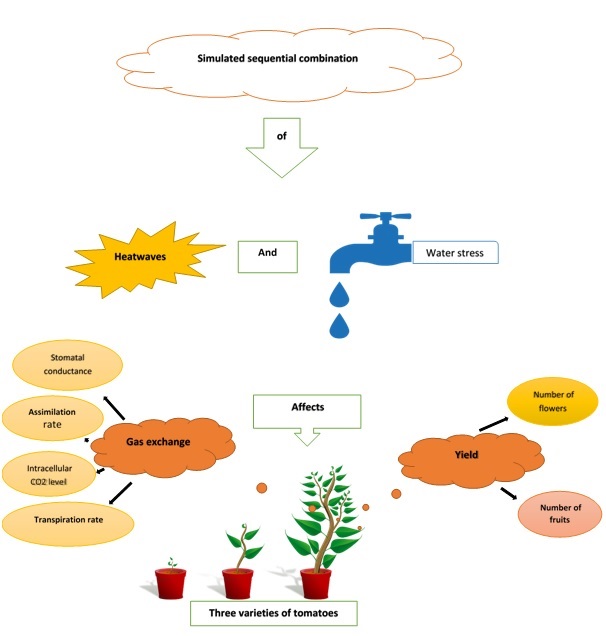Simulating the impact of projected West African heatwaves and water stress on the physiology and yield of three tomato varieties

Published 2020-04-21
Keywords
- fruit yield,
- heat stress,
- Solanum lycopersicum,
- Tomato,
- water stress
How to Cite
Abstract
Food security is a major issue in West Africa. As a consequence of climate change, increases in temperature and shifts in precipitation will have major ramifications for which crops can be grown in the region. Here we conducted an experiment to evaluate the impacts of short-term projected heat and water stress on three tomato varieties (Solanum lycopersicum): Oregon Spring, Roma VF, and Tropic. The plants were initially cultivated in the glasshouse programmed at 28/20oC day/night cycle. The treatments investigated were: control (CT); heat stress (Ht); water stress (Ws) and Heat + together with water stress (HtWs). For heatwave treatments, a 35/23oC day/night gradually taken up in a cycle was imposed. The water stress conditions were by decreasing the soil water field capacity by 50%. Leaf gas exchange and plant production parameters were measured. Our result indicated that all varieties suffered from significant declines in yield as consequence of the stresses. The heatwave treatment proved more detrimental on the tomato fruit yield than the water stress, except when these two treatments occurred in sequential cycles. The results of this study suggest that heatwaves and water stress, projected to occur more frequently due to climate change, may adversely impact the growth and yield of these three tomato varieties. Also, there was an unexpected fruit yield performance comparison among varieties tested in this experiment.





